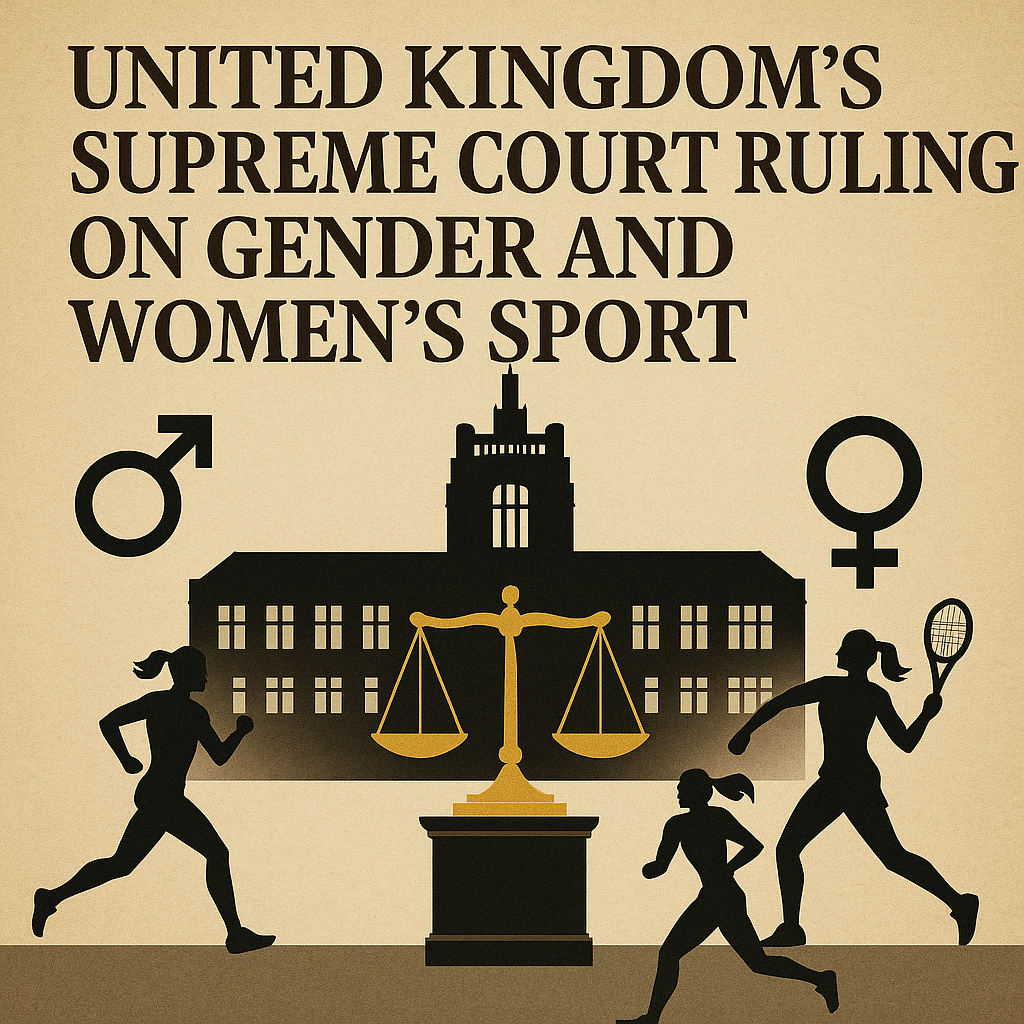UNITED KINGDOM’S SUPREME COURT RULING ON GENDER AND WOMEN’S SPORT

The issue of whether transgender women can participate in women’s sport is a continuing and controversial one and has not been resolved, to date, in all sports at either the elite or the grassroots’ levels.
Perhaps, the ruling, on 16 April 2025, by the UK Supreme Court that the legal definition of a woman is based on biological sex may provide some guidance to sports’ governing bodies in dealing with this issue in future.
The UK highest Court ruled that the „concept of sex is binary„, and that a person with a Gender Recognition Certificate in the female gender „does not come within the definition of a woman„.
In other words, there are only two categories: male or female and gender is decided at birth.
As regards females competing at the elite level of sport, it may be expected that more sports’ governing bodies will issue regulations to protect the female category of their sports, as several have done so already. For example, athletics, cycling and aquatics have introduced bans on transgender women taking part in their women’s events.
At the grass roots’ level of sport in the UK, where eligibility criteria are less strict, far more transgender people compete than at the elite level.
A spokesperson for Women in Sport, a charitable organisation based in London, stated that:
“We hope that other sports would have the confidence to protect the female category for natal women while finding solutions to enable transgender people to participate and compete.”
For example, in 2022, British Triathlon became the first British sports’ governing body to establish an open category in which transgender athletes may compete.
In Switzerland, there is no blanket ban on transgender athletes in women’s sport and eligibility is determined by specific rules and guidelines, based on testosterone levels and the timing of puberty, as laid down by various international sports bodies.
At the end of the day, as the International Olympic Committee has stated, it is a matter of balancing inclusiveness and fairness in sport when deciding on the thorny of transgender athletes participating in sport.
We advise athletes, clubs and sports’ governing bodies on transgender issues in sport, including disputes, and further information is available from Sara Botti, Noemi Delli Colli and Estelle Ivanova and Ian Blackshaw by emailing them at botti@valloni.ch; dellicolli@valloni.ch; ivanova@valloni.ch; and blackshaw@valloni.ch respectively.